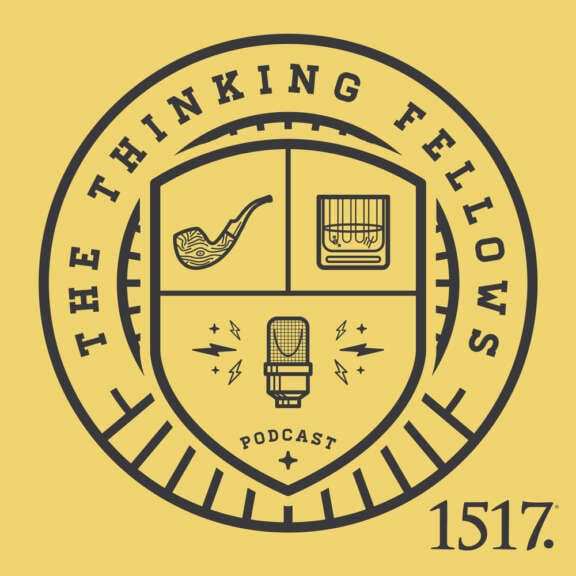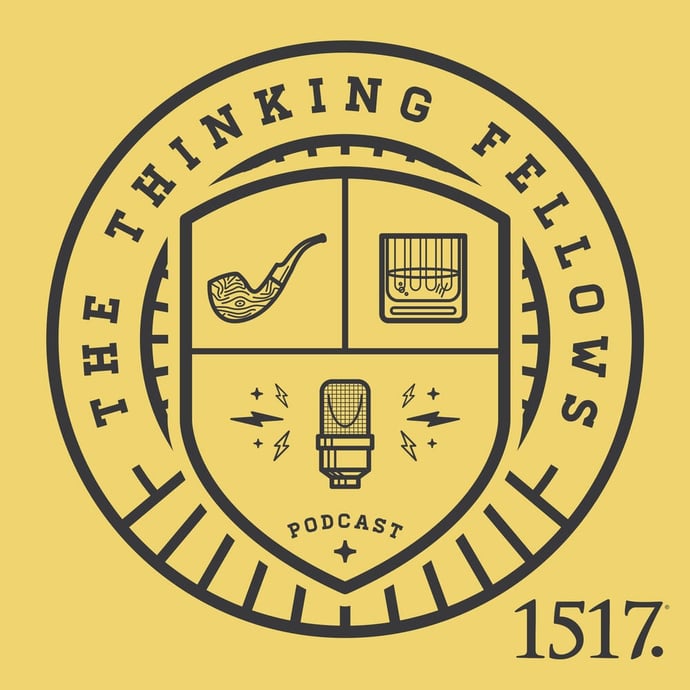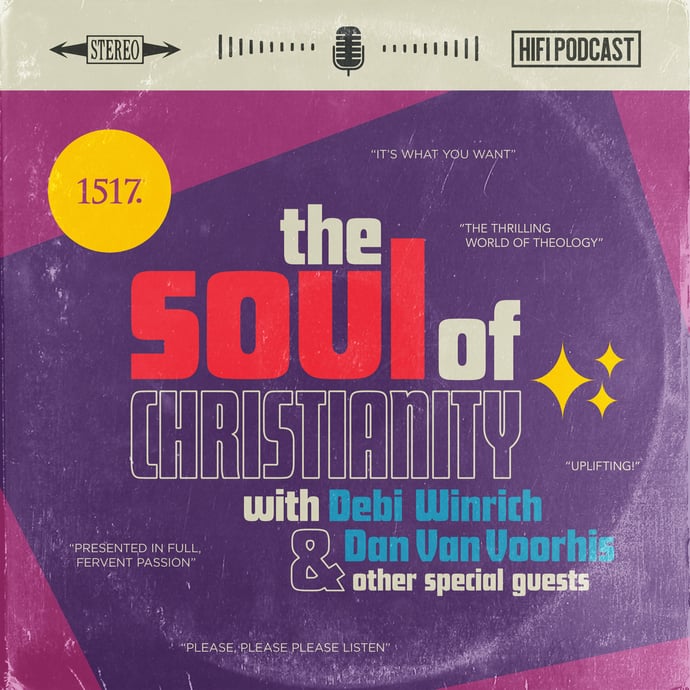The Thinking Fellows cover the major reformational events between 1535 and 1539.
Podcasts
Each 1517 Podcast is dedicated to delivering Christ-centered content through weekly, monthly, and seasonal audio platforms. Listen online or on your favorite podcasting app.
Rod Rosenbladt
- All Authors
- Aaron Zimmerman
- Adam Francisco
- Amy Mantravadi
- Blake Flattley
- Bob Hiller
- Bradley Gray
- Brian W. Thomas
- Bror Erickson
- Bruce Hillman
- Caleb Keith
- Chad Bird
- Chris Rosebrough
- Christopher Gillespie
- Cindy Koch
- Craig Donofrio
- Dan van Voorhis
- Daniel Deen
- Daniel Emery Price
- Darrin Sheek
- David Andersen
- David Rufner
- David Zahl
- Debi Winrich
- Delwyn Campbell
- Donavon Riley
- Doug Klembara
- Edward Killian
- Elyse Fitzpatrick
- Erick Sorensen
- Flame
- Grant Klembara
- Gretchen Ronnevik
- Haroldo Camacho
- Jacob Smith
- Jared C. Wilson
- Jeff Mallinson
- Jeffrey Pulse
- Jessica Thompson
- Jim Nestingen
- Joel Fitzpatrick
- Joel Hess
- John Andrew Schreiner
- John Bombaro
- John T. Pless
- John W. Hoyum
- John Warwick Montgomery
- Katie Koplin
- Kelsi Klembara
- Ken Sundet Jones
- Luke Kjolhaug
- Magnus Persson
- Mark Mattes
- Matt Popovits
- Michael Berg
- Michael Horton
- Nick Lannon
- Paul Koch
- Peter Nafzger
- Philip Bartelt
- Raleigh Sadler
- RJ Grunewald
- Robert Kolb
- Rod Rosenbladt
- Ron Hodel
- Sam Leanza Ortiz
- Sarah Condon
- Sarah Crowder
- Scott Davis
- Scott Keith
- Steven Paulson
- Tanner Olson
- Troy Neujahr
- Uwe Siemon-Netto
- Wade Johnston
- William Cwirla
-
Coming back from the Diet of Augsburg the Lutheran reformers began responding to the doctrinal backlash of the Confutation.
-
In 1530 an imperial diet was called to the city of Augsburg. Among many issues to be addressed was the increasing influence of Lutheran theology.
-
Before his death in 1532 Ulrich Zwingli led a more radical reform than those in Wittenberg. Zwingli was not only a theologian, but also a humanist, and a soldier ultimately leading to his death on the battlefield.
-
On this episode, the Thinking Fellows talk about catechisms and catechetical methodology. During the Reformation, catechisms were a tool for addressing the issue of Christian education.
-
The seventh episode of the History of The Reformation brings the Fellows to a challenging time in Lutheran history.
-
This episode of the Thinking Fellows opens to the peasants revolt and the radical reform of Thomas Müntzer. To round out the show the Conversation moves to the Bondage of the Will and the begining of Luther’s family life.
-
In 1521, the Pope issued an official decree known as bull against Luther. The Bull declared Luther’s writings as heresy and demanded he recant.
-
As the Biblical text transforms Luther’s positions on grace and justification, he shifts his writing from disputations to letters targeted at the common man, secular rulers, and the Roman church.
-
The Thinking Fellows continue outlining the events of the Reformation by following Luther’s move from the monastery to the university.
-
The Fellows begin a new series outlining the history of the Reformation. The first episode features a thorough description of the Middle Ages followed by the initial struggles of Luther.
-
In this the second episode of The Soul of Christianity we discuss how The Creed is the summation of what we believe. It’s the answer to the fight over the divinity and humanity of Christ.. Words like suffered, died, bled, crucified were contested. We take those descriptions for granted now when they were not believed before.


